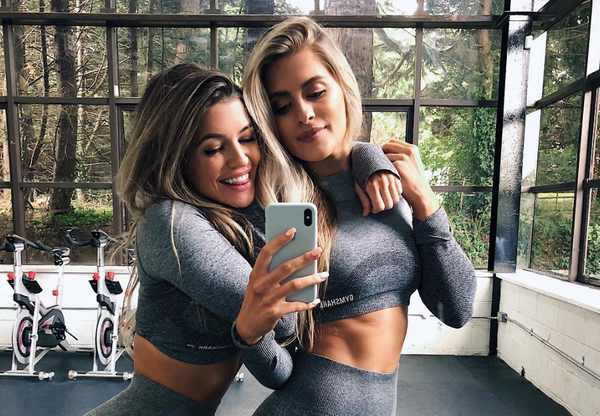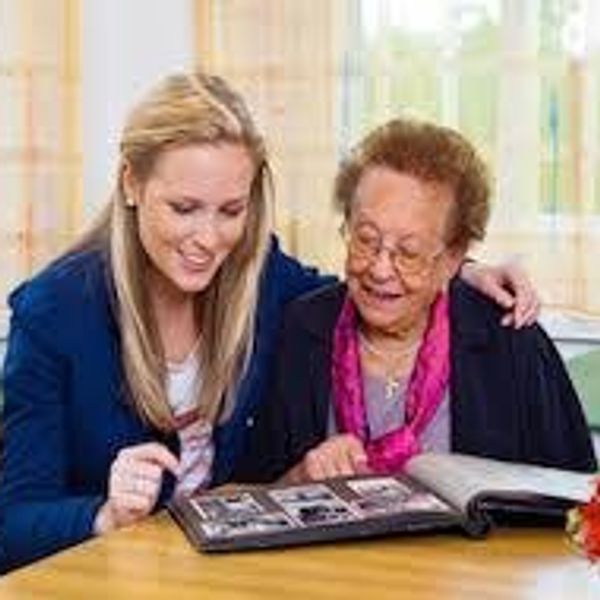One name is on my mind today: Santa Fe. In the wake of yet another school shooting, I am left reeling for the victims, but more than ever I am reeling for answers. Now, after Friday's events, I am ready to start a conversation.
This isn't your typical article about gun reform.
As some protest slogans say: "Guns don't kill people, people kill people."
And that's exactly who this article is reaching out to: the people behind these guns.
I am a child who grew up in what has been dubbed the "school shooting generation." Just last Friday morning, the Santa Fe shooting occurred. It is time we look at the children--yes, children--behind these guns.
When I was a little girl, I would look at the faces in mugshots on TV and in the newspaper and wonder: Who is this person? Who is their mother/father/sister/brother/child? Who is their family? How did this happen to them? How did they come to do this terrible thing that has now ruined their life forever?
I wouldn't say it aloud because I knew what sort of answers--or lack thereof--might come after that. Because who around me would care about these people, especially if what they did was take the life of another human being?
Now, I could spend an entire article writing in circles about my personal take on the effects of systemic poverty and inequality in our country, but that's not what I'm going to do today. That's another fight altogether, and one that will raise too many voices and fists.
And what I’m asking for is not a fight but a forgiving and a quiet call for small but meaningful action. Because do we really need more violence in the current climate we're in?
A week or so after the Parkland, Florida shooting, I sat down with one of my close family members, a mental health care professional with over 25 years of experience in the field, and asked them for their thoughts on the event. What they gave me was an overview of possible solutions for the particular situation, the apparent trend of escalation to violence in our country, and, perhaps most importantly, potential measures that could have been taken with the young man behind the gun to prevent the unfortunate outcome. To me, these potential answers to an increasingly dire problem seemed compassionate and intuitive. But I'll let my reader be the judge.
The first thing I asked my family member about was the current state of our nation's mental health care system as a whole. It turns out, if our system for your general, physical health care was in anywhere similar of a state, we'd all be in a world of hurt. What my family member explained to me, and what most people don't usually realize, is that mental illnesses are just as real and serious as your typical physical illnesses and diseases.
However, one main difference between the two in our country is perhaps what leads us to suffer the most: the treatment we provide for them. In the case of physical problems, such as with the heart, we have a strong enough health care system to take care of not just the heart attack, but even the earliest stages of heart disease.
In fact, we prioritize this kind of treatment, because who wants to wait until their illness becomes bad enough that they could have a heart attack and die? What most people miss here is that mental illness too deals with life and death, and unfortunately, in the case of homicidal ideation, which deals with the thoughts of and plans to hurt others, with the life of not just the person with the illness but with the people around them. In short, heart disease leads to heart attack leads to death translates in mental illness terms to depression, bipolar disorder, schizophrenia, post-traumatic stress disorder leads to crisis leads to suicide or even, sadly, to homicide.
Indeed, just like with physical illnesses, mental illnesses come in degrees and must be treated as such so that they do not escalate to the point of anyone getting hurt or dying. But, while we have the health care system and general "If something's wrong with my body, I should go to the doctor" common sense ingrained in our culture, what we don't have is the counterpart logic and procedures for dealing with mental and behavioral health issues.
About a year ago now, I fell into a deep depression that, when I took a test to rank my degree of illness, turned out to be severe. I was lucky to have mental health professionals in my immediate family who could recognize the signs of my illness and get me the treatment I needed in a timely manner. But, being away at college, my illness had flown below my family's radar for a little over a month. By the time I had finally gathered the courage to reach out for help, I was on the brink of suicidal thoughts.
Had I waited any longer, I could have been on the brink of suicide itself.
This is just one real-life example of the importance of not only making mental health care available--which luckily wasn't a problem for my family, but is for many less fortunate families--but recognizing and treating the symptoms of mental health problems before real life-or-death problems develop.
What would this look like in the case of the young man behind the gun in the Parkland shooting? It is evident that something was almost certainly wrong.
First, he was given up by his birth family, which means there may have been problems/traumas he inherited rooted in his biological family that we do not know about (he was adopted at birth but nothing is known about his parentage/prenatal conditions). It is known that he struggled with depression, attention deficit hyperactivity disorder, emotional behavioral disability, and autism.
Second, both his adoptive parents had passed away, his mother just recently, his father before his eyes when he was 6 by a heart attack, a trauma in itself. When his mom passed away, the young man was left to stay with a friend, the family of whom he was engaged in an altercation with that resulted in a 911 call.
He was also reported to have been expelled from school, the normal high school he desperately wished to attend after being placed at a special school for children with emotional and behavioral disabilities. All of these conditions very likely caused the 19-year-old to become very isolated. My reader can see a full story of his life here, should they be interested.
The very unfortunate reality, as I touched on above, is that we as a nation do not provide for the preventive treatment necessary for preventing outcomes such as the Parkland shooting. We only provide for the ER visits and the hospitalization, which the young man would not have qualified for until he had reached the edge of homicidal ideation and would have been deemed too dangerous or "far gone" to calm down. This is where my family member suggests mental Health First Aid, an initiative started by mental health care professionals, comes into play.
What could have been alternative ways of preparing the young man for a healthy future other than expulsion from school and a potential stay in prison? My family member said that he could have been given a care coordinator to keep in touch with him, especially after the death of his guardian. This young man, at the age of 19, was on that fine line between being a child and an adult, which may seem to justify his not having anyone to watch over him, but his particular story and overall development demanded it. In other words, it's not good for anyone to be isolated at the age of 19, much less someone who has struggled with mental and behavioral health issues.
Now my reader might be wondering what can be done in the future to stop school shootings like those in Parkland and Santa Fe. It may be too late in these cases, but there are potential changes to be made to prevent the next.
How about we start by contacting our state and national legislators and urging them to fund mental health care, a historically underfunded facet of our society? Increasing the provisions for programs such as nonprofit mental health centers and DHS will never hurt in a society where people are hurting.
Secondly, there are commonalities to be found between school shootings as well as other similar events, such as the Aurora movie theater shooting, and the list only begins with "untreated mental illness" and "isolation". Research into the similarities between these kids who end up hurting others can make early intervention and thus prevention of crises and tragic outcomes more possible.
What about the guns, you ask? Something should certainly be done, but like with Prohibition, taking all guns away should not be and will not be the answer but will only serve to exacerbate the problem.
To those who cry out for gun control, how about we develop a process for linking mental health care professionals to gun sellers so that people who experience suicidal and homicidal ideation cannot have access to them but someone with mild depression and anxiety can (because to say that no one with mental illness should be allowed to have guns only serves to further stigmatize mental illness and even mask the true, root problem of mental illness that has gone untreated and escalated to the point of people being hurt)? Or at the very least, some way of communicating any possible threats to public or personal safety, regardless of if there has been criminal prosecution or not, to the gun-selling system?
And how about we look at other cultures in which guns are allowed and this sort of violence is nonexistent? What sort of cultural or family values are present there that are not here?
And last but certainly not least, how are we raising our children? What if every family and school in America gave their children the best care and support they could possibly attain? What if we made utmost care and support for every child a priority in this country?
What I am looking for is radical, but it is humanistic.
Let's stop talking about guns for a second and talk about people.
We can take the guns away, but as a recent mass killing by knives in China shows, when left uncared for, people will still find ways to hurt other people, especially when they have experienced hurt themselves.
The answer is to care for others.
And our country, as developed as it is, is just getting started.



















